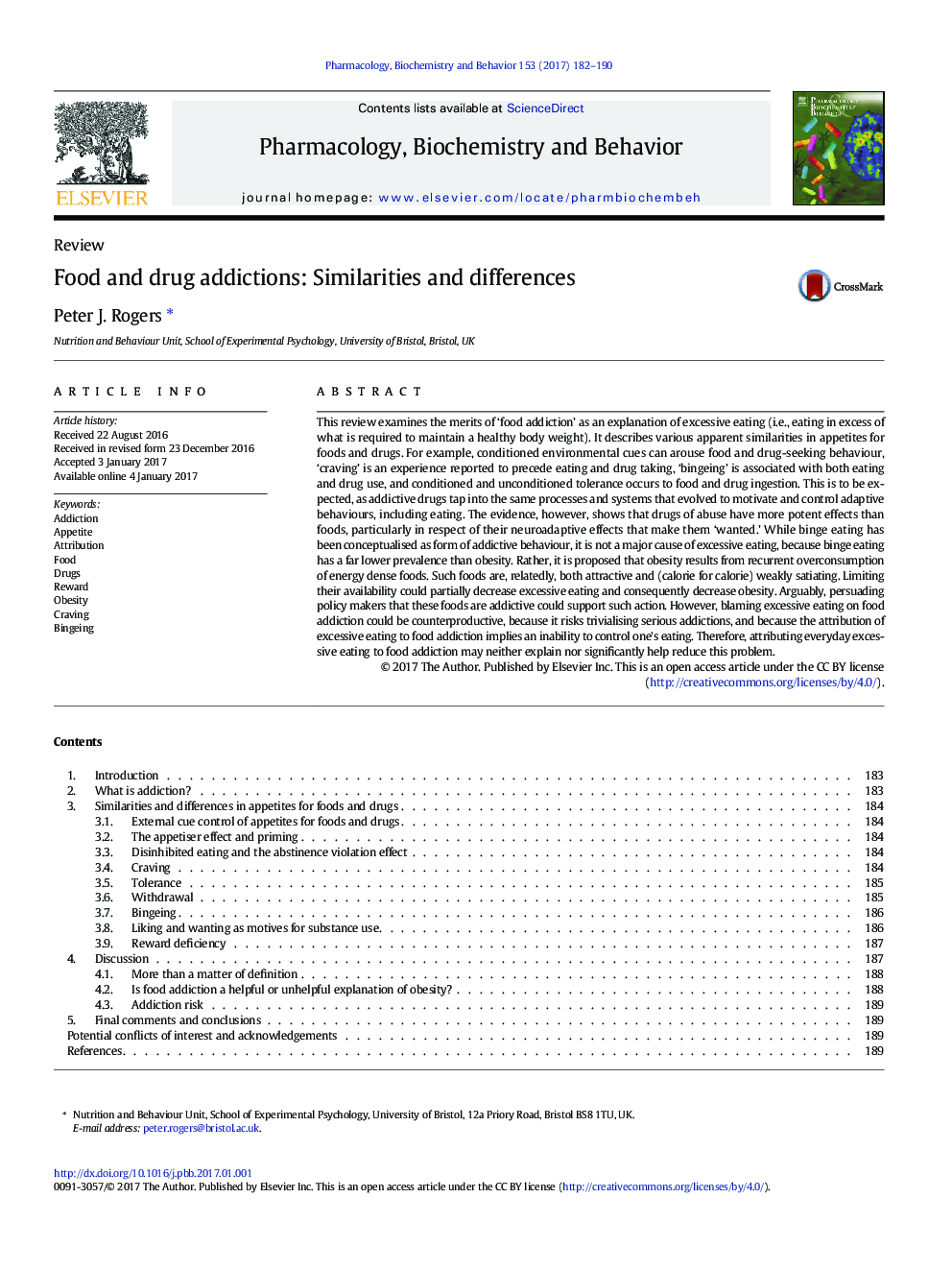| کد مقاله | کد نشریه | سال انتشار | مقاله انگلیسی | نسخه تمام متن |
|---|---|---|---|---|
| 5515212 | 1541834 | 2017 | 9 صفحه PDF | دانلود رایگان |
- Neurobehavioral similarities between appetites for drugs and foods are to be expected.
- Drugs of abuse have more potent effects than do foods.
- Everyday excessive eating is not well characterised as food addiction.
- Recurrent overconsumption of energy dense foods better explains obesity.
- Attributing excessive eating to food addiction could be counterproductive.
This review examines the merits of 'food addiction' as an explanation of excessive eating (i.e., eating in excess of what is required to maintain a healthy body weight). It describes various apparent similarities in appetites for foods and drugs. For example, conditioned environmental cues can arouse food and drug-seeking behaviour, 'craving' is an experience reported to precede eating and drug taking, 'bingeing' is associated with both eating and drug use, and conditioned and unconditioned tolerance occurs to food and drug ingestion. This is to be expected, as addictive drugs tap into the same processes and systems that evolved to motivate and control adaptive behaviours, including eating. The evidence, however, shows that drugs of abuse have more potent effects than foods, particularly in respect of their neuroadaptive effects that make them 'wanted.' While binge eating has been conceptualised as form of addictive behaviour, it is not a major cause of excessive eating, because binge eating has a far lower prevalence than obesity. Rather, it is proposed that obesity results from recurrent overconsumption of energy dense foods. Such foods are, relatedly, both attractive and (calorie for calorie) weakly satiating. Limiting their availability could partially decrease excessive eating and consequently decrease obesity. Arguably, persuading policy makers that these foods are addictive could support such action. However, blaming excessive eating on food addiction could be counterproductive, because it risks trivialising serious addictions, and because the attribution of excessive eating to food addiction implies an inability to control one's eating. Therefore, attributing everyday excessive eating to food addiction may neither explain nor significantly help reduce this problem.
Journal: Pharmacology Biochemistry and Behavior - Volume 153, February 2017, Pages 182-190
